Punarnava Churna Powder | 100% Pure Boerhavia Diffusa Root Powder | Ayurvedic Herbal Supplement for Kidney & Urinary Health | Natural Detox & Wellness Support | 100g
₹100
Punarnava Churna, also known as Boerhavia diffusa, is an Ayurvedic herbal powder made from the roots of the Punarnava plant.
In Ayurvedic medicine, Punarnava Churna is used to support kidney and urinary tract health, reduce inflammation, and promote overall health and well-being. It is believed to have diuretic, anti-inflammatory, and antioxidant properties that can help reduce fluid retention, support kidney function, and protect against cellular damage caused by free radicals.
- Delivery & Return
Delivery
We ship to all over the world. All orders are shipped with a UPS tracking number. Always free shipping for orders over 1000. During sale periods and promotions the delivery time may be longer than normal.Return
Adarsh Ayurvedic Pharmacy will accept exchanges and returns of undamaged box within 30 days of the date of purchase (14 days during the sales period), on presentation of the original till receipt at any store where the corresponding collection is available within the country of purchase. Your return will usually be processed within a week to a week and a half. We’ll send you a Return Notification email to notify you once the return has been completed. Please allow 1-3 business days for refunds to be received to the original form of payment once the return has been processed.Help
Give us a shout if you have any other questions and/or concerns. Email: aapdeepak.hdr@gmail.com Phone: 9897902760
Punarnava Churna, also known as Boerhavia diffusa, is an Ayurvedic herbal powder made from the roots of the Punarnava plant.
In Ayurvedic medicine, Punarnava Churna is used to support kidney and urinary tract health, reduce inflammation, and promote overall health and well-being. It is believed to have diuretic, anti-inflammatory, and antioxidant properties that can help reduce fluid retention, support kidney function, and protect against cellular damage caused by free radicals.
Punarnava Churna is typically consumed orally in the form of a powder, mixed with water or other liquids. It can also be added to food or beverages. As with any herbal remedy, it is important to consult with a qualified practitioner before using Punarnava Churna or any other herbal remedy, especially if you are taking medications or have a pre-existing medical condition.
In Ayurvedic medicine, Punarnava Churna is used to support kidney and urinary tract health, reduce inflammation, and promote overall health and well-being. It is believed to have diuretic, anti-inflammatory, and antioxidant properties that can help reduce fluid retention, support kidney function, and protect against cellular damage caused by free radicals.
Note: We recommend a consultation with an Ayurvedic physician before consumption of these products as each body & individual is unique. For a free consultation with our in-house physician please call us on +918791111138 between 4 pm to 6pm.
Benefits of taking Ayurvedic medicine:-
- contain no synthetic or chemical ingredients
- medicine has no side effects
- lab tested
- conventional material is used
We recommend 6 month usage to attain optimum results
All the information is provided for educational purpose only and it is not intended to be a substitute for professional medical advice, diagnosis or treatment.
Buy 10 get one free.
Selflife: 3 Years
| Weight | 250 g |
|---|---|
| Dimensions | 14 × 12.5 × 8.5 cm |
| Weight | 100gm |
Based on 0 reviews
|
|
|
0% |
|
|
|
0% |
|
|
|
0% |
|
|
|
0% |
|
|
|
0% |
Related Products
Pathyadi Kwath is an Ayurvedic herbal decoction made from a blend of several herbs, including Haritaki (Terminalia chebula), Bibhitaki (Terminalia bellirica), and Shunti (Zingiber officinale).
According to Ayurvedic principles, Pathyadi Kwath is believed to help support respiratory health, particularly in cases of cough and cold. It is also commonly used to support digestive health, promote healthy metabolism, and alleviate symptoms associated with inflammation.
Basant Kusumakar Ras is believed to work by regulating blood sugar levels, improving digestion, and strengthening the immune system. It is also used to treat urinary tract infections, liver disorders, and pancreatitis. However, it is important to note that Basant Kusumakar Ras should only be taken under the guidance of a qualified Ayurvedic practitioner, as it may have some side effects and interactions with other medications.
It is a herbo-mineral formulation that contains various natural ingredients, including Swarna Bhasma (gold ash), Rajat Bhasma (silver ash), Vanga Bhasma (tin ash), and other herbs such as Haritaki (Terminalia chebula), Bibhitaki (Terminalia bellirica), Amalaki (Emblica officinalis), Shuddha Shilajit (purified asphaltum), and Guggulu (Commiphora mukul).
Vrihat Vat Chintamani Ras (also spelled as Vihrit Vat Chintamani Ras) is a traditional Ayurvedic medicine that is used to treat various conditions related to the nervous system, including paralysis, facial palsy, hemiplegia, and sciatica. It is typically made from a combination of minerals such as purified mercury, sulfur, and mica, along with herbs like ginger, long pepper, and black pepper.
However, it’s important to note that the use of Ayurvedic medicines should be done under the guidance of a qualified Ayurvedic practitioner, as they can be potentially harmful if not used properly. Additionally, the safety and efficacy of these medicines have not been evaluated by the FDA, so caution should be exercised when using them.
According to Ayurveda, Sanjivani Vati is used to balance the Pitta and Kapha doshas in the body. It is commonly used for the treatment of fever, cough, cold, and other respiratory tract infections. It is also used to boost immunity and improve digestion.
Sanjivani Vati is known for its anti-inflammatory, antipyretic, and immunomodulatory properties. It helps in reducing fever, inflammation, and pain in the body, and also helps in boosting immunity and preventing infections. It is also beneficial for treating digestive disorders such as indigestion and bloating.
Anantmool, also known as Sariva, is an Ayurvedic herb derived from the roots of Hemidesmus indicus plant. The roots of this plant are used for medicinal purposes in Ayurveda.
According to the Ayurvedic Medicine book, Anantmool root is traditionally used to treat various health conditions such as hydronephrosis, syphilis, and leucorrhea. Hydronephrosis is a condition where urine accumulates in the kidneys, causing them to swell. Syphilis is a sexually transmitted infection that can cause long-term health complications if left untreated. Leucorrhea is a condition characterized by vaginal discharge.
Swadukantak is typically taken in tablet form, and the recommended dosage and duration of use can vary based on the individual’s specific health needs and the guidance of a qualified healthcare professional. It is important to note that like all herbal remedies, Swadukantak may interact with certain medications or have potential side effects in some individuals.
Swadukantak is an Ayurvedic herbal formula used to support healthy digestion and promote overall gastrointestinal health. It is a blend of several herbs, including Chitrak (Plumbago zeylanica), Pippali (Piper longum), and Ajwain (Trachyspermum ammi).
Dashmool Kwath is an Ayurvedic herbal decoction made from a blend of ten herbs, which include Bilva (Aegle marmelos), Agnimantha (Premna integrifolia), and Shyonaka (Oroxylum indicum). The name Dashmool means ‘ten roots’ or ‘ten herbs,’ and the combination of these herbs is believed to have a synergistic effect and offer a wide range of potential health benefits.
According to Ayurvedic principles, Dashmool Kwath is believed to help balance the three doshas – Vata, Pitta, and Kapha, and promote overall health and well-being. It is commonly used to support the respiratory system, improve digestion, and relieve stress and anxiety.
“Arogyavardhini” is an Ayurvedic herbal formulation that is traditionally used to promote overall health and well-being. It is believed to help support liver function, improve digestion, and boost the immune system.
The ingredients of Arogyavardhini of this specific formulation typically includes a combination of herbs and minerals such as triphala (a blend of three fruits), kutki (a bitter herb), guggulu (a resin), shilajit (a mineral pitch), Abarak bhasam , Loh Bhasam and others.
The unique formulation of Adarsh Aroghyavardhni has potency to burn fat and purify blood .
As with any herbal supplement, it is important to consult with a healthcare professional before taking Arogyavardhini, especially if you have any pre-existing medical conditions or are taking any medications.
Key Component:
1. Triphala: A blend of three fruits – amla, haritaki, and bibhitaki – that are known for their antioxidant and anti-inflammatory properties. Triphala is commonly used in Ayurveda to support digestion and overall health.
2. Kutki: A bitter herb that is commonly used in Ayurveda to support liver health and improve digestion. Kutki is believed to have anti-inflammatory, antiviral, and antioxidant properties.
Haridrakhand (also spelled as Haridra Khanda) is an Ayurvedic herbal formulation that is commonly used in traditional Indian medicine. It is a powdered mixture of various herbs and spices, with turmeric (haridra in Sanskrit) being the primary ingredient.
Some of the key ingredients in Haridrakhand include turmeric, ginger, black pepper, cardamom, cinnamon, and honey. These ingredients are believed to have a range of health benefits, such as reducing inflammation, improving digestion, boosting the immune system, and promoting healthy skin.
Swas Chintamani Ras (also spelled as Swas Kas Chintamani Ras) is a traditional Ayurvedic medicine that is used to treat respiratory disorders, such as asthma, bronchitis, and cough. It is typically made from a combination of minerals such as purified mercury, sulfur, and mica, along with herbs like vasa, yashtimadhu, and pippali.
However, it’s important to note that the use of Ayurvedic medicines should be done under the guidance of a qualified Ayurvedic practitioner, as they can be potentially harmful if not used properly. Additionally, the safety and efficacy of these medicines have not been evaluated by the FDA, so caution should be exercised when using them.
Swas Chintamani Ras (also spelled as Swas Kas Chintamani Ras) is a traditional Ayurvedic medicine that is used to treat respiratory disorders, such as asthma, bronchitis, and cough. It is typically made from a combination of minerals such as purified mercury, sulfur, and mica, along with herbs like vasa, yashtimadhu, and pippali.
However, it’s important to note that the use of Ayurvedic medicines should be done under the guidance of a qualified Ayurvedic practitioner, as they can be potentially harmful if not used properly. Additionally, the safety and efficacy of these medicines have not been evaluated by the FDA, so caution should be exercised when using them.
Krimi Kutar Ras is an Ayurvedic medicine used for the treatment of intestinal worms and parasitic infections. It is made from a combination of various herbs and minerals, including Vatsanabha (Aconitum ferox), Pippali (Piper longum), Shuddha Gandhak (Purified Sulphur), and Tankana Bhasma (Borax).
However, it is essential to note that the use of Krimi Kutar Ras should be done under the guidance of a qualified Ayurvedic practitioner. Overdose or incorrect usage can cause adverse effects like stomach upset, vomiting, and diarrhea. It is also not recommended for pregnant and lactating women and child.
Ashok, also known as Saraca indica, is an Ayurvedic herb derived from the bark of the Saraca indica tree. The bark of this tree is used for medicinal purposes in Ayurveda.
According to the Ayurvedic Medicine book, Ashok bark is traditionally used to treat various health conditions such as excessive bleeding, menorrhagia (heavy menstrual bleeding), and bleeding piles (hemorrhoids).
Ashok bark is believed to have astringent and uterine tonic properties that may help reduce bleeding and tone the uterus. It is commonly used in Ayurvedic medicine as a natural remedy for various gynecological disorders, including those mentioned above.



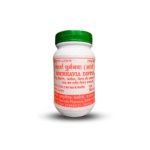
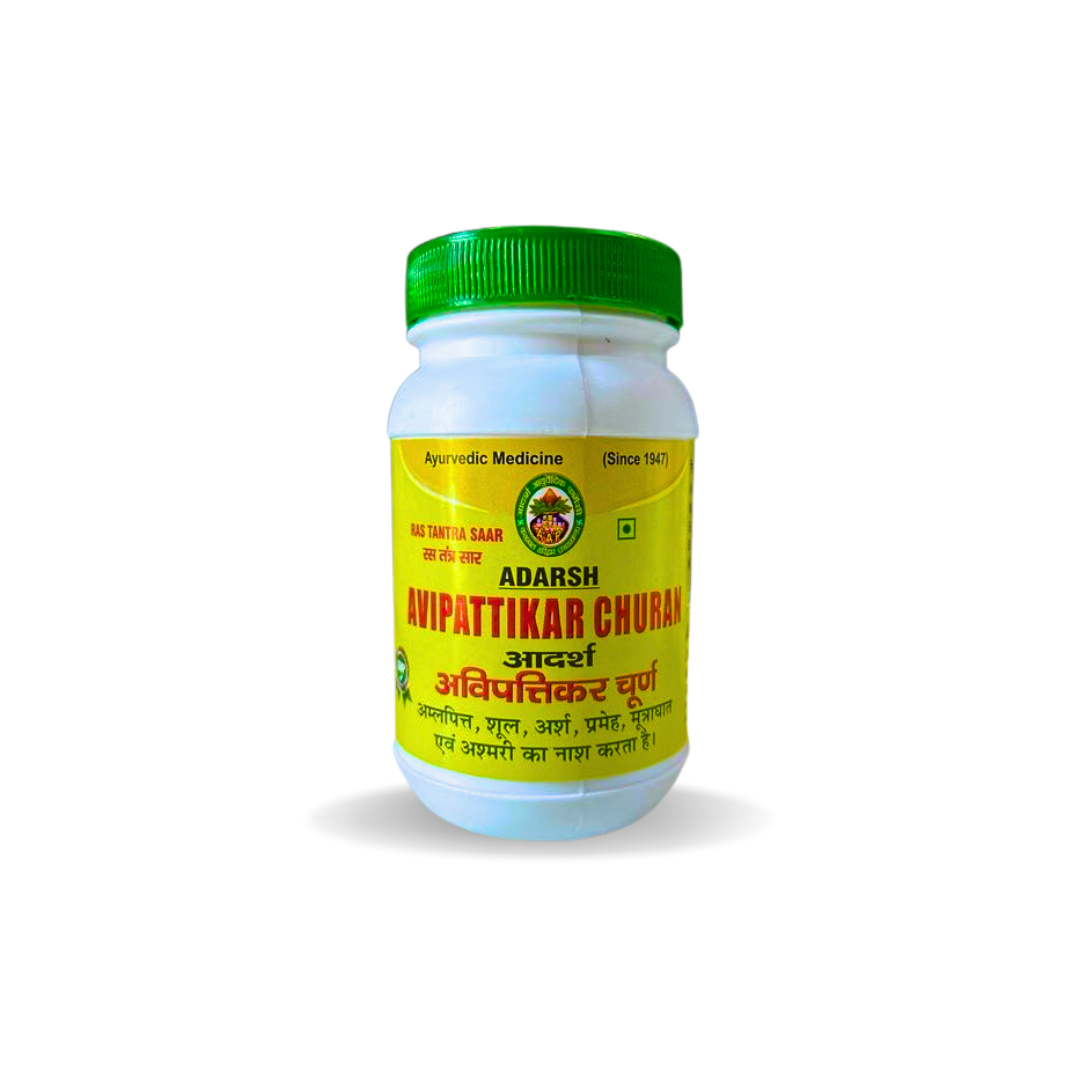
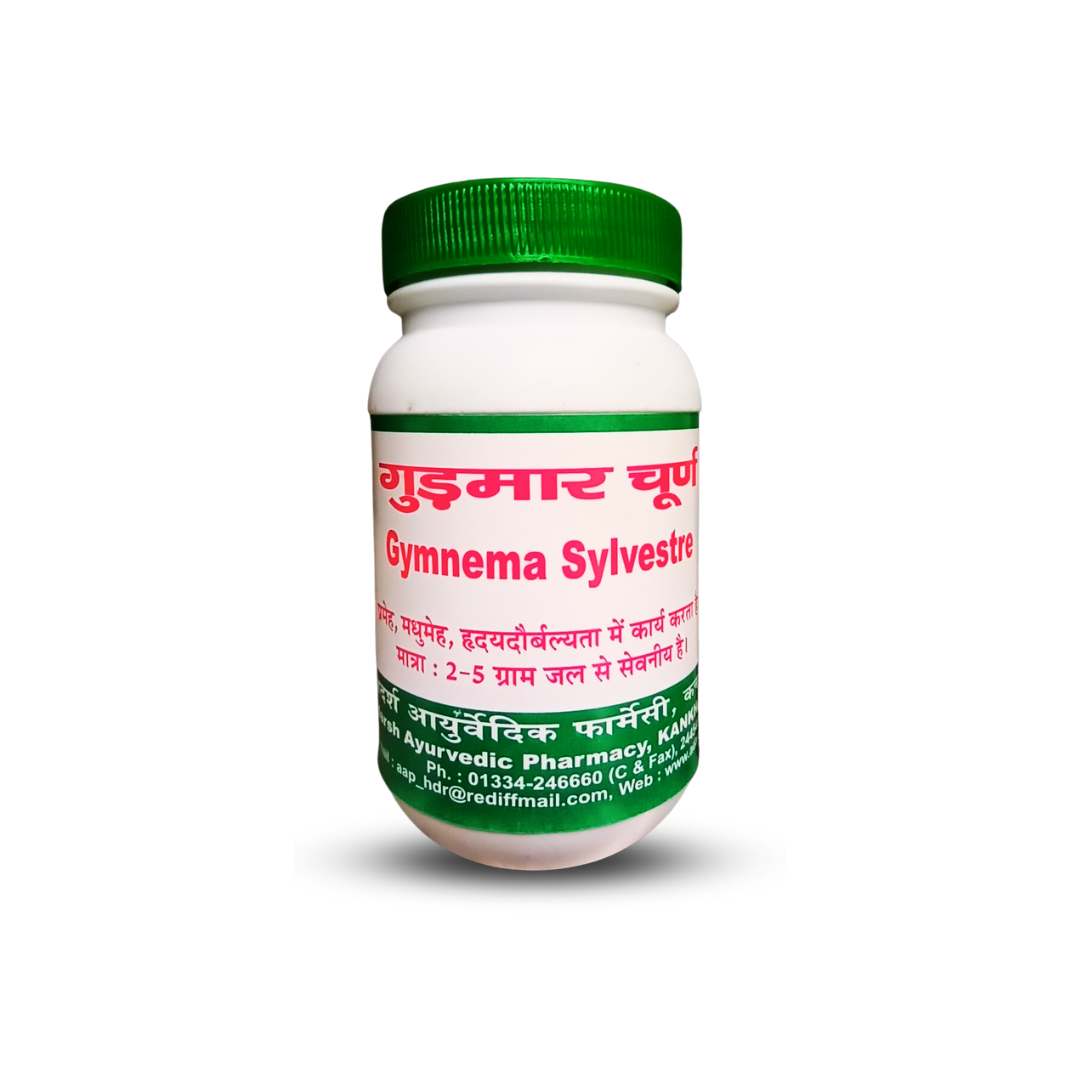





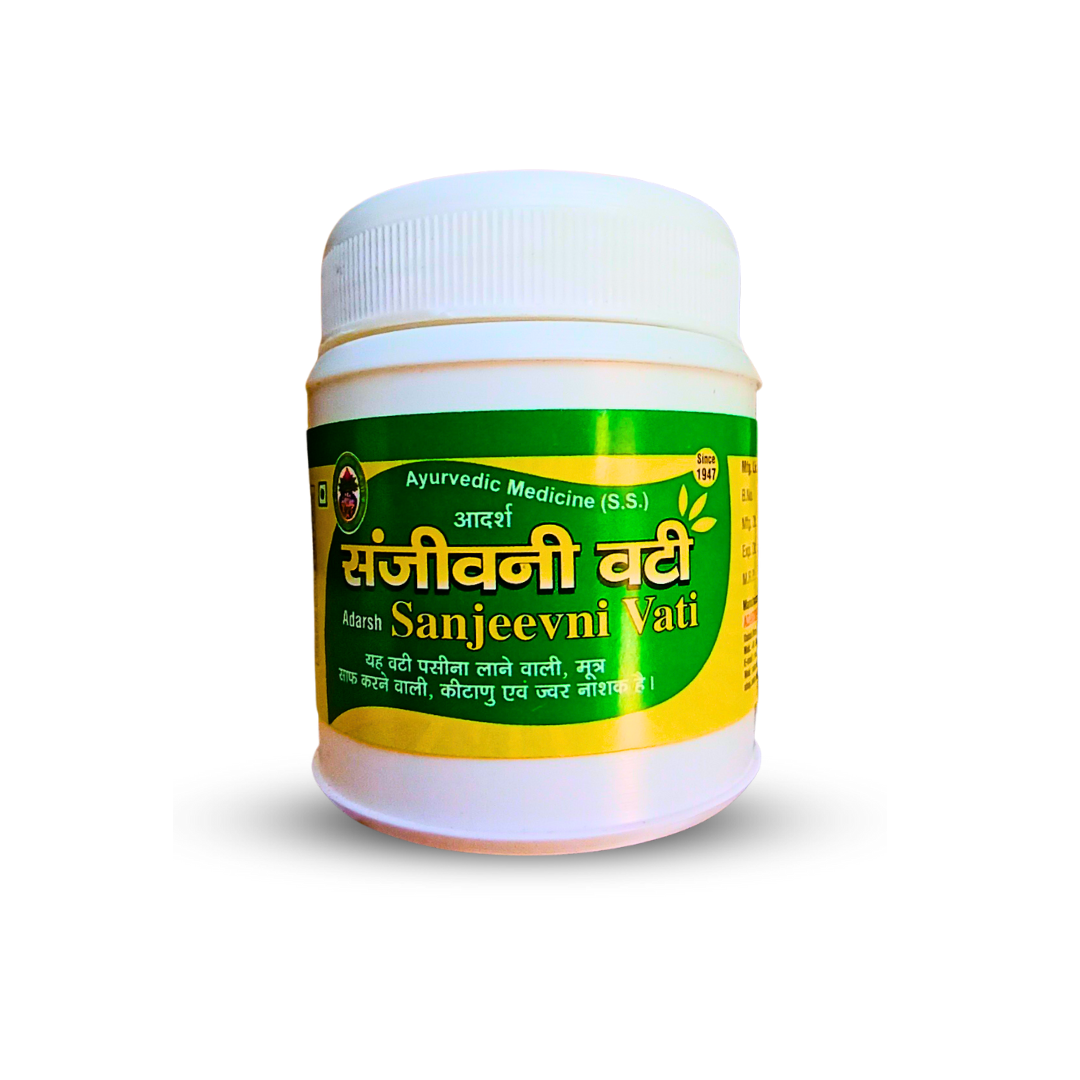









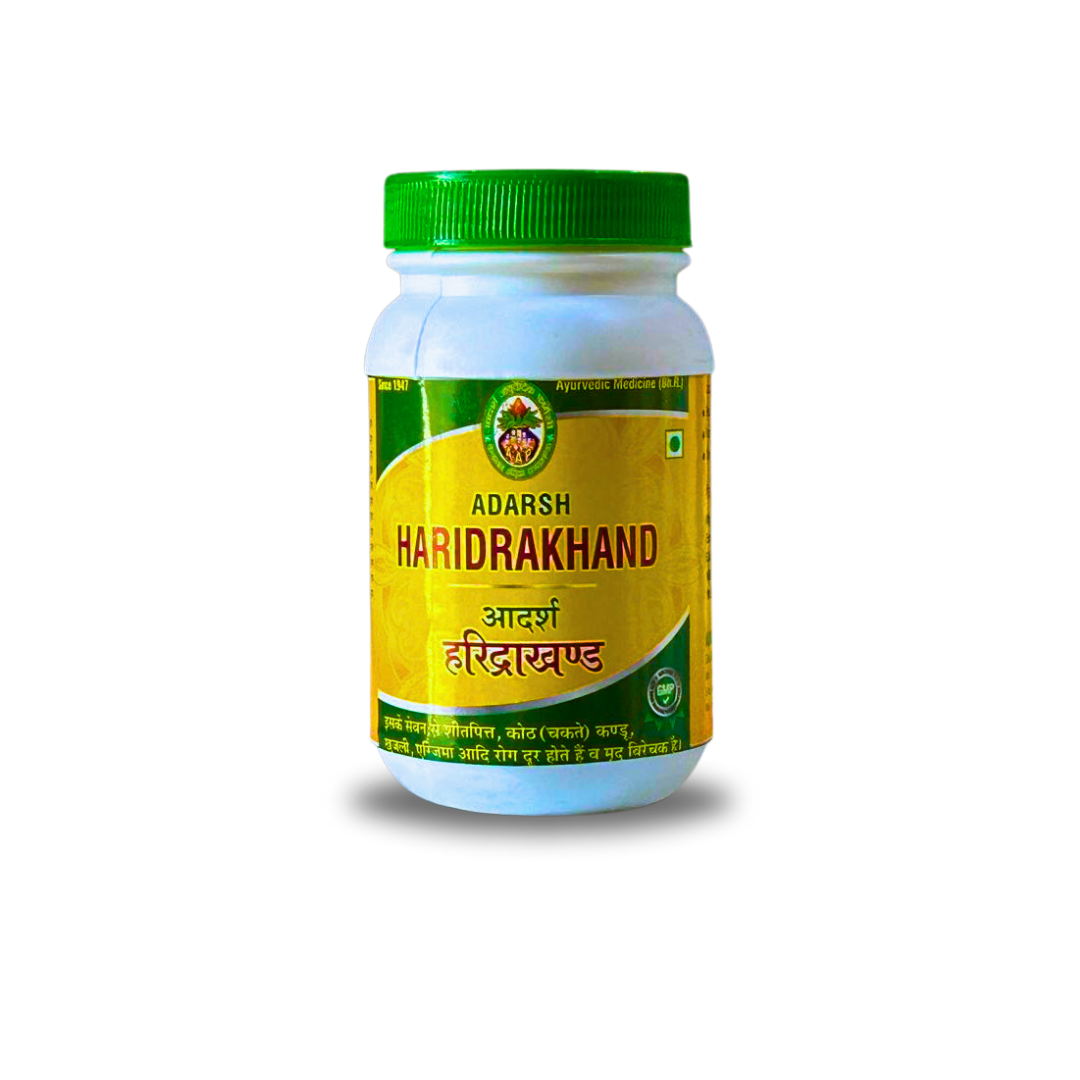







Reviews
There are no reviews yet.